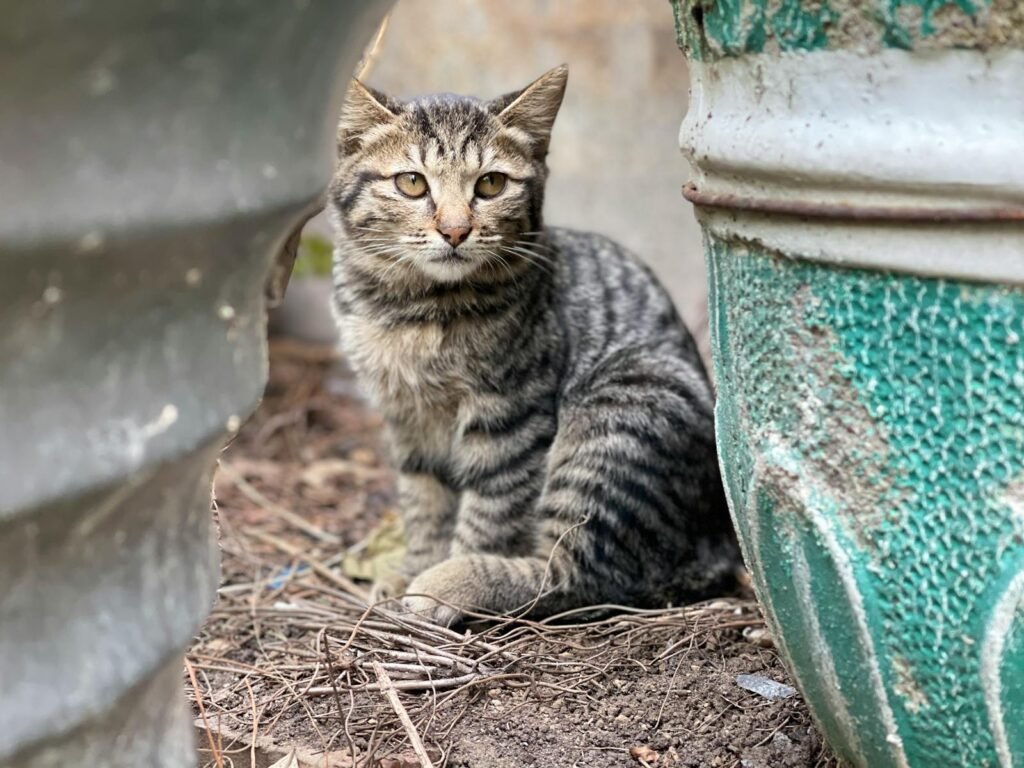Cats, with their graceful demeanor and independent nature, are often perceived as aloof creatures. Yet beneath their poised exterior, they possess a deep emotional side. Just like humans, cats can sometimes feel left out. This can happen when there are changes in their environment, when they feel neglected, or when they sense that their human companions are not giving them the attention they crave. Understanding these emotions and knowing how to respond can make a significant difference in your feline friend’s well-being.
Recognizing the Signs of a Lonely Cat
Cats have their own unique ways of expressing loneliness. Unlike dogs who might bark or whine, cats are more subtle. They may become unusually quiet or, conversely, start vocalizing more than usual. You might notice them following you around the house or overly grooming themselves, which can be a sign of stress. Some cats might even become destructive, knocking things over or scratching furniture more than usual. Recognizing these signs is the first step in addressing their feelings of being left out.
The Impact of Routine Disruptions

Cats are creatures of habit. They thrive in environments where they know what to expect. Any changes in their routine, such as a new pet, a move to a new house, or even a change in your work schedule, can make them feel disoriented. This disruption can lead to feelings of being left out, as they might not understand why things have changed. It’s essential to maintain as much consistency as possible and slowly introduce any changes to help your kitty adjust.
The Power of Play
One of the best ways to address your cat’s feelings of being left out is through play. Engaging your cat in playtime can significantly boost their mood and eliminate feelings of neglect. Use toys that mimic prey, such as feather wands or laser pointers, to stimulate their hunting instincts. Regular play sessions not only provide physical exercise but also strengthen the bond between you and your cat, ensuring they feel loved and included.
Providing a Safe Space
Every cat needs a sanctuary—a place where they can retreat and feel secure. This could be a cozy corner with a soft bed or a high perch where they can observe their surroundings without disturbance. Providing this safe space allows your cat to have a refuge where they can relax and recharge. It also serves as an assurance that they have their own territory, making them feel less left out.
Quality Time Matters
Spending quality time with your cat is vital. It’s not just about being in the same room but actively engaging with them. Whether it’s a gentle petting session or simply talking to them, these interactions can make your cat feel valued. Remember, it’s not the quantity of time but the quality that counts. Even a few minutes of undivided attention can go a long way in making your cat feel included.
Understanding the Role of Environmental Enrichment

Cats need stimulation to keep their minds active. Environmental enrichment can play a crucial role in preventing feelings of being left out. This can include providing scratching posts, interactive toys, or even a window perch for bird watching. By enriching their environment, you offer them opportunities to explore, play, and feel a part of their world, reducing the chances of them feeling neglected.
The Importance of Socialization
If your cat is the only pet in the household, they might feel left out if they don’t have enough social interaction. Consider arranging playdates with other friendly cats or adopting another pet to keep them company. However, always ensure that introductions are gradual to avoid any territorial disputes. Socialization can provide your cat with the companionship they need, ensuring they never feel isolated.
Listening to Your Cat’s Body Language
Cats communicate a lot through their body language. By paying attention to their cues, you can better understand when they’re feeling left out. This might include flattened ears, a twitching tail, or avoiding eye contact. By recognizing these signs, you can take proactive steps to address their needs and ensure they feel included and cherished.
Consulting a Veterinarian
If you’ve tried various methods and your cat still seems unhappy, it might be time to consult a veterinarian. There could be underlying health issues causing their behavior changes. A vet can provide guidance, rule out any medical conditions, and offer advice on how to ensure your cat’s emotional and physical well-being. It’s always better to be safe and get a professional opinion.
Concluding these insights, understanding your cat’s emotional needs is crucial in ensuring they feel loved and included. By being attentive, providing a stimulating environment, and spending quality time, you can make a significant difference in your cat’s life.

Suhail Ahmed is a passionate digital professional and nature enthusiast with over 8 years of experience in content strategy, SEO, web development, and digital operations. Alongside his freelance journey, Suhail actively contributes to nature and wildlife platforms like Feline Fam, where he channels his curiosity for the Feline into engaging, educational storytelling.
With a strong background in managing digital ecosystems — from ecommerce stores and WordPress websites to social media and automation — Suhail merges technical precision with creative insight. His content reflects a rare balance: SEO-friendly yet deeply human, data-informed yet emotionally resonant.
Driven by a love for discovery and storytelling, Suhail believes in using digital platforms to amplify causes that matter — especially those protecting Earth’s biodiversity and inspiring sustainable living. Whether he’s managing online projects or crafting wildlife content, his goal remains the same: to inform, inspire, and leave a positive digital footprint.






